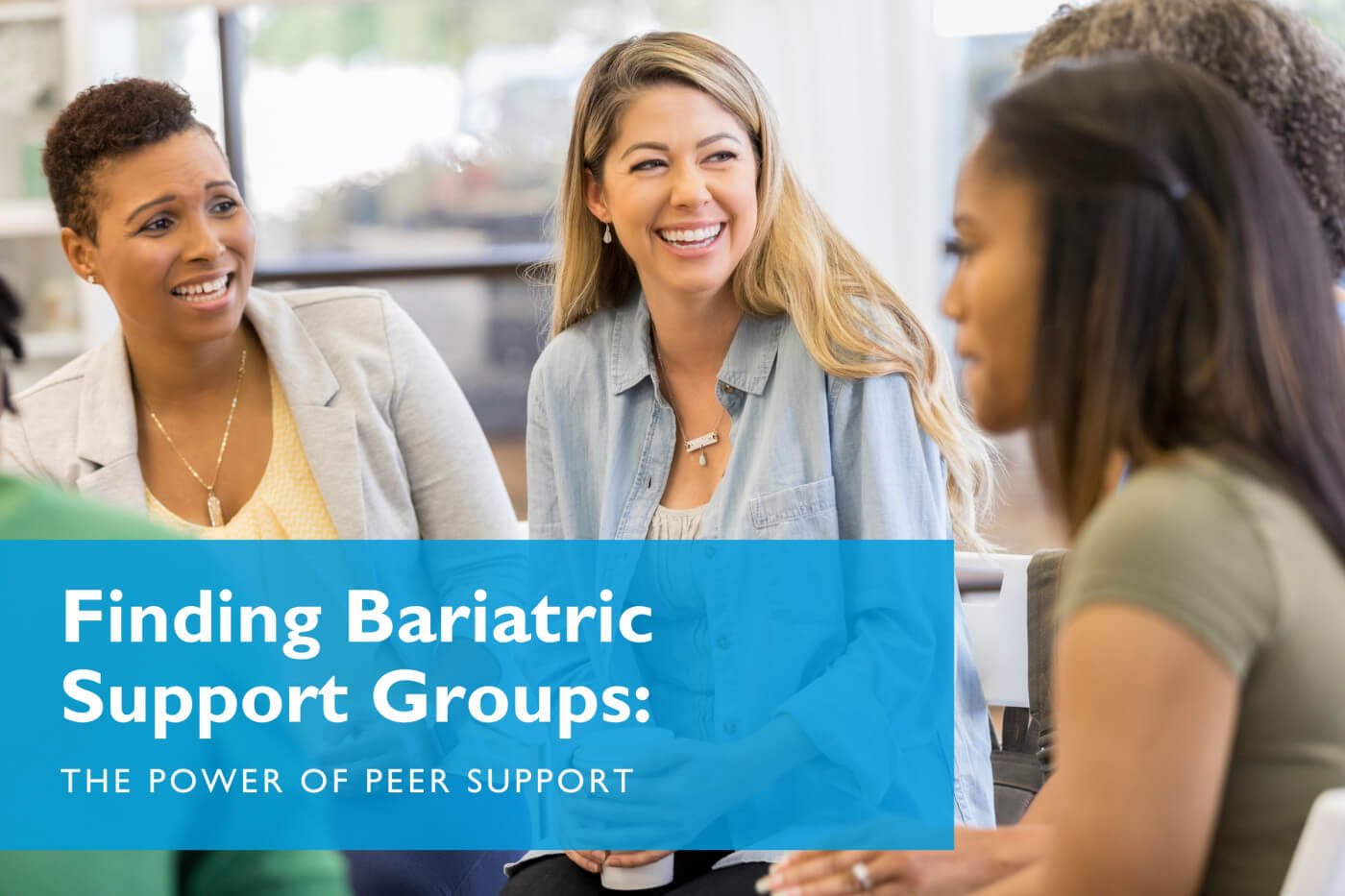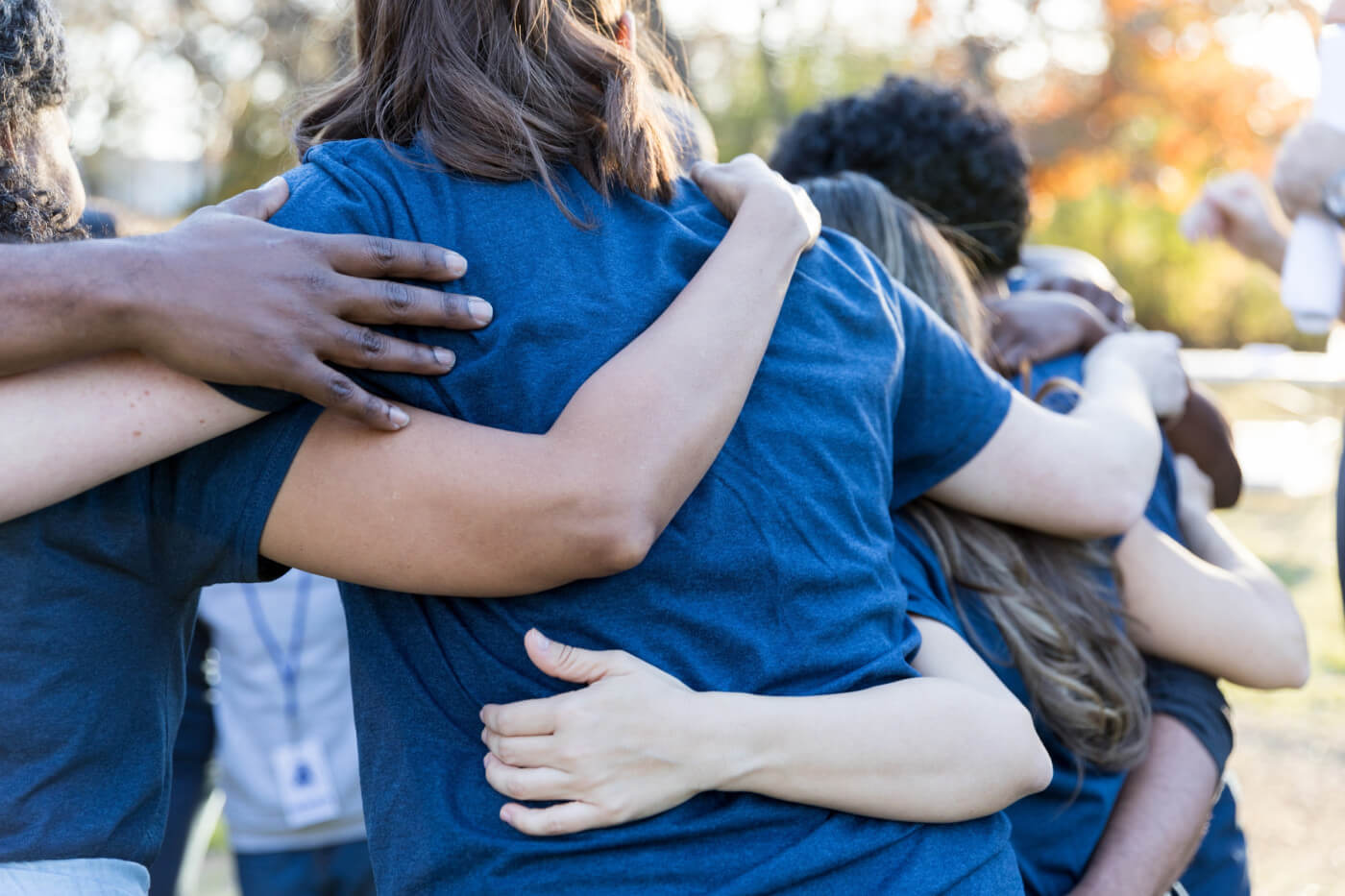Finding Bariatric Surgery Support Groups: The Power of Peer Support
 Dr. Samantha Stavola-Giaconia DCN, RDN, LD, FAND
Lifestyle
Dr. Samantha Stavola-Giaconia DCN, RDN, LD, FAND
Lifestyle
April 15th, 2024

Bariatric surgery, often seen as a life-changing decision for individuals struggling with obesity, isn't just about physical transformation; it's also about embarking on a journey of mental and emotional well-being. While the surgical procedure itself can initiate significant weight loss, the post-operative period presents its own set of challenges. However, amid these challenges, bariatric surgery support groups emerge as examples of hope and solidarity, offering a sense of community and understanding that can be crucial for long-term success.
The Power of Peer Support:
One of the most significant factors contributing to successful outcomes after bariatric surgery is peer support. This form of support goes beyond medical professionals and involves connecting with individuals who have undergone similar experiences. Whether it's sharing struggles, celebrating victories, or offering practical advice, peer support creates a nurturing environment where individuals feel understood and accepted.
In bariatric surgery support groups specifically tailored for post-bariatric surgery patients, participants often find relief in knowing they are not alone in their journey. These groups provide a platform for individuals to share their stories, ask questions, and seek guidance from those who have walked the same path. The empathy and encouragement received from peers can be immensely motivating, especially during times of plateau or setbacks.
Moreover, peer support groups offer a unique opportunity for members to learn from each other's experiences. For instance, someone who has successfully overcome challenges related to dietary adherence may offer valuable insights to others struggling with similar issues. Likewise, individuals can exchange tips on managing emotional eating, coping with body image concerns, or navigating social situations post-surgery. This exchange of knowledge fosters a sense of solidarity and empowerment among group members, reinforcing the notion that they are all in this journey together.

Community Engagement and Accountability:
Beyond the emotional support provided by peer groups, community engagement plays a vital role in maintaining accountability and fostering healthy habits. Many post-bariatric surgery support groups organize regular meet-ups, online meetings, or virtual events where members can interact and engage in activities promoting wellness.
From group exercise sessions to healthy cooking classes, these community initiatives encourage individuals to stay active and make mindful choices about their diet and lifestyle. Additionally, participating in community events fosters a sense of belonging and reinforces the notion that weight loss surgery is not just a personal journey but a collective effort towards better health.
In addition to organized group activities, social media platforms have become instrumental in facilitating community engagement among post-bariatric surgery patients. Facebook groups, Instagram pages, and online forums provide virtual spaces where individuals can connect, share updates, and seek advice from peers around the clock. These online communities offer a sense of closeness and accessibility, allowing members to receive support and encouragement at any time, regardless of geographical location.

Navigating Challenges Together:
While bariatric surgery can lead to significant weight loss and improved health outcomes, it is not without its challenges. From adjusting to dietary changes to managing potential complications, individuals may encounter various obstacles along the way. However, having a support system in place can make all the difference in overcoming these challenges.
Peer support group sessions serve as invaluable resources for navigating the ups and downs of post-operative life. Whether it's addressing concerns about body image, coping with emotional eating, or seeking advice on managing relationships, members of these groups offer practical insights and unwavering encouragement. By sharing experiences and learning from one another, individuals can develop resilience and confidence in their ability to overcome obstacles.
Moreover, bariatric surgery support groups may provide a sense of accountability that can significantly enhance adherence to lifestyle changes. Knowing that others are rooting for their success motivates individuals to stay committed to their health goals, even when faced with temptation or setbacks. Whether it's attending group exercise sessions, tracking food intake, or seeking professional help when needed, the support and encouragement from peers reinforce the importance of prioritizing self-care and well-being.

The Role of Professional Guidance:
While bariatric surgery support groups offer invaluable emotional and practical support, it's essential to recognize the importance of professional guidance in the post-bariatric surgery journey. Medical professionals, including surgeons, dietitians, psychologists, and support staff, play a crucial role in ensuring patients receive comprehensive care before, during, and after surgery.
In addition to providing medical oversight and monitoring patients' progress, healthcare professionals offer evidence-based guidance on diet, nutrition, exercise, and behavioral changes. This guidance helps individuals make informed decisions about their health and empowers them to adopt sustainable lifestyle habits for long-term success.
Moreover, healthcare professionals can address any concerns or complications that may arise post-surgery, providing timely intervention and support when needed. Whether it's managing nutritional deficiencies, addressing psychological challenges, or navigating social barriers, the expertise and guidance of medical professionals are invaluable in optimizing outcomes and promoting overall well-being.

The Evolution of Peer Support:
Over the years, the landscape of peer support for post-bariatric surgery patients has evolved significantly, driven by advancements in technology and changing healthcare trends. While traditional face-to-face support groups remain popular and effective, digital platforms have emerged as powerful tools for connecting individuals and fostering community engagement.
Social media platforms, smartphone apps, and online forums have transformed the way individuals access and interact with peer support networks. These digital platforms offer convenience, anonymity, and accessibility, allowing individuals to connect with peers from diverse backgrounds and geographical locations. Whether it's sharing success stories, seeking advice, or offering encouragement, digital peer support networks provide a sense of community and belonging in the digital age.
Moreover, the rise of telehealth, virtual bariatric surgery support groups, and virtual support services has further expanded access to peer support for individuals undergoing bariatric surgery. Telehealth platforms enable patients to connect with healthcare providers and peer support groups remotely, eliminating geographical barriers and enhancing convenience. This shift towards virtual care has become particularly prominent in the wake of the COVID-19 pandemic, highlighting the importance of leveraging technology to support patients' needs in times of crisis.
In the journey towards sustained weight loss and improved health after bariatric surgery, finding support and community is vital. Bariatric surgery support groups provide a safe space where individuals can connect, share, and grow together. Through empathy, encouragement, and shared experiences, these groups empower individuals to navigate the challenges of post-operative life with resilience and optimism.
Community engagement and professional guidance complement peer support, ensuring individuals receive comprehensive care and support throughout their journey. By embracing the power of peer support, leveraging technology, and partnering with healthcare professionals, individuals undergoing bariatric surgery can embark on a journey of transformation that extends far beyond physical changes, enriching their lives in profound ways. As we continue to evolve and innovate in the realm of post-bariatric surgery support, let us prioritize collaboration, empathy, and inclusivity, creating a supportive environment where every individual can thrive.



